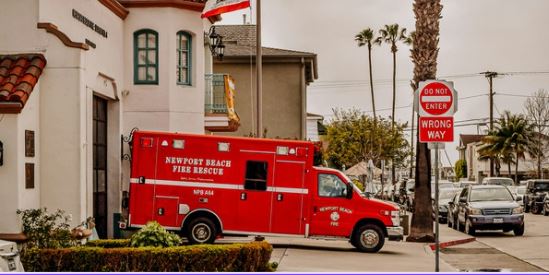On January 8, 2024, California Governor Gavin Newsom announced a groundbreaking initiative aimed at improving mental health services for the state’s first responders, including police officers, firefighters, paramedics, and emergency medical technicians. The initiative, titled First Responders Mental Health Support Act, is designed to address the growing mental health crisis faced by those who serve on the front lines of emergency response, providing them with better access to mental health resources, counseling, and rehabilitation programs.
At the press conference in Sacramento, Newsom highlighted the alarming statistics surrounding mental health struggles among first responders. According to the California Department of Public Health, more than 30% of first responders in the state experience symptoms of post-traumatic stress disorder (PTSD), depression, or anxiety, with suicide rates among first responders significantly higher than the general population. “These men and women are tasked with protecting our communities, but who is looking out for their mental well-being?” Newsom asked. “This initiative is about ensuring that first responders have the support and resources they need to heal and perform at their best.”
The new law allocates $250 million in state funding over the next five years to establish mental health programs specifically tailored for first responders. The funding will go toward expanding counseling services, developing peer support networks, and creating dedicated mental health crisis intervention teams within emergency response departments. The initiative will also provide training for supervisors to recognize signs of mental distress and reduce the stigma surrounding mental health in first responder communities.
Key figures involved in the initiative include State Senator Richard Pan, who co-authored the legislation. Pan, a longtime advocate for public health and mental health services, emphasized the importance of reducing the stigma around seeking mental health support. “First responders are often expected to be emotionally invincible, but we know that the trauma they experience can take a severe toll,” Pan said. “This legislation ensures that they will have access to the care they need without fear of judgment or retribution.”
The bill was strongly supported by major labor unions representing first responders, including the California Professional Firefighters and the California Police Officers Association, both of which have lobbied for greater mental health support for their members. “Our first responders are the backbone of our communities, but the emotional toll they bear can be overwhelming,” said Brian Rice, President of the California Professional Firefighters. “This initiative is a critical step in ensuring that they receive the care and support they deserve.”
While the initiative has been praised by mental health experts and public safety groups, some critics argue that the funding may not be sufficient to meet the needs of all first responders across the state, particularly in rural and underfunded areas. Despite these concerns, the initiative is being hailed as a positive step forward in addressing the mental health crisis among those who risk their lives to protect others.
As California moves forward with implementing the First Responders Mental Health Support Act, many are hopeful that this will serve as a model for other states facing similar challenges in supporting their emergency service personnel. The program is expected to begin rolling out in early 2024, with the first phase focusing on increasing access to counseling services and peer support programs.



